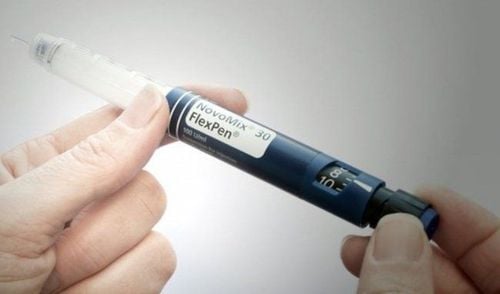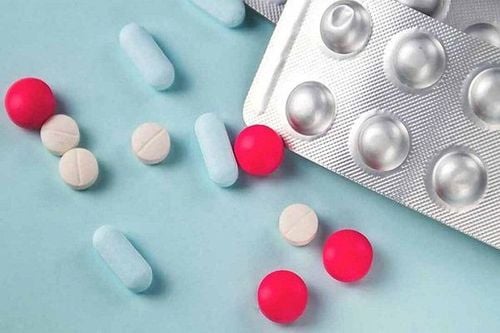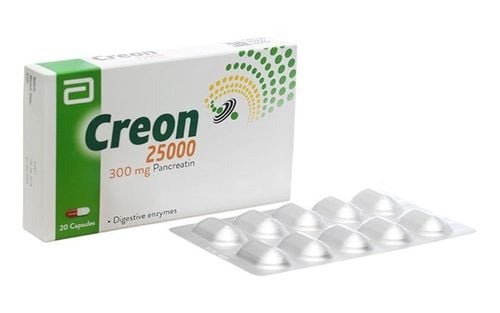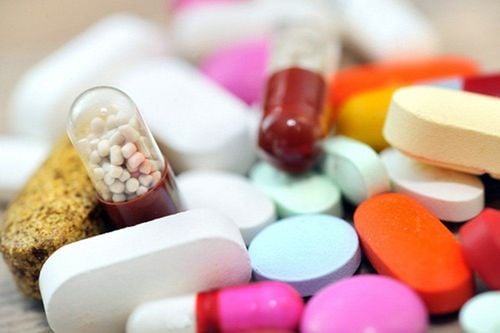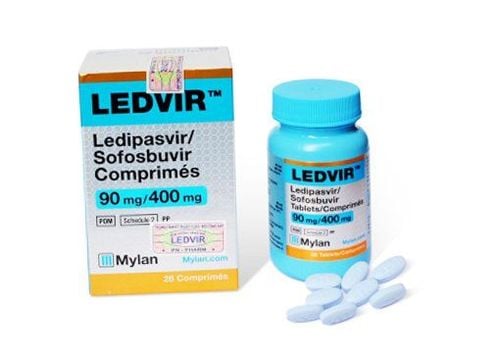This is an automatically translated article.
The article was consulted professionally with MSc. Doctor Vu Thi Duyen - Doctor of Nephrology - Endocrinology, Department of Examination & Internal Medicine - Vinmec Hai Phong International General Hospital.Diabetes mellitus is a chronic metabolic disorder with an increasing rate and number of people suffering from it. When anyone with diabetes has to control their blood sugar by using insulin injections, the patient has their own notes to help maintain good blood sugar stability during treatment and limit possible complications. happen.
Blood glucose levels in patients with diabetes should be achieved and maintained preferably at physiological levels close to the blood glucose levels of people without diabetes. For some special cases, blood glucose levels need to be reached and maintained within the specific limits prescribed by the doctor, possibly such as having many comorbidities or advanced age at risk of hypoglycemia. To help control blood sugar well, people with diabetes who are using insulin injections should note the following points:
1. It is necessary to choose healthy foods to match the meal
In fact, the foods that should be used by diabetics are the same foods that are recommended for any person. These are foods that are low in fat, low in salt, low in sugar and high in fiber, rich in vitamins, clean and safe without stimulants such as legumes, fresh fruits, vegetables, and cereals.When eating healthy foods will help diabetics have good health because it has the following effects:
Helps patients maintain a reasonable weight. Make sure to keep blood sugar levels in the allowable and safe range without causing many complications. Prevention of heart and blood vessel disease In case the patient is using insulin injections to control blood sugar, remember:
Follow the instructions for insulin injection exactly as directed by the doctor. Eat enough meals, maintain the same amount of food and the same time each day. Do not skip meals, especially after taking insulin injections because under the effect of insulin drugs, skipping meals can cause excessive hypoglycemia even life-threatening. Furthermore, skipping meals can cause you to overeat at your next meal, leading to excessive postprandial hyperglycemia. It is best to have several small meals throughout the day rather than one or two large meals.
2. Exercise and sports
Living an active lifestyle has health benefits for anyone, including people with diabetes. Sports activities that can be referred to are:Walking Swimming Dancing Cycling Playing other sports Even daily activities (such as cleaning the house, gardening, ...) Both make the body more active and bring health benefits.
For people with diabetes, being active is very beneficial because:
Helps to lose or maintain a healthy weight Can support insulin effectiveness Helps cardiovascular and respiratory systems work properly More Help the body feel healthy, full of energy Before exercising, consult your doctor, because if the body has an abnormal condition (such as high blood pressure, glaucoma,...), Some forms of exercise may not be appropriate or even safe.
A week, try to exercise at least 3 times, about 30-45 minutes each time. If you've never exercised or exercised little before, start the process with only 5-10 minutes at first, then gradually increase the time through each exercise.
In case the patient is injecting insulin, it should be noted:
Do not exercise before eating and only exercise after eating as directed by the doctor. Check your blood sugar before, during and after exercise. If your blood sugar is too high or too low, contact your doctor right away. Avoid exercising before bedtime because it can be a favorable condition for hypoglycemia during the night, especially in patients with multiple comorbidities.

Luyện tập thể dục thể thao mang lại lợi ích sức khỏe cho bất cứ ai, bao gồm bệnh nhân tiểu đường
3. Adhere to using insulin exactly as prescribed by a specialist
Insulin is a hormone that is produced naturally in the body. If the body does not produce enough or stops producing insulin, the body will lack at this time need to use insulin to replace it. All patients with type 1 diabetes must take insulin for life, and patients with type 2 diabetes also need to use insulin when prescribed by an endocrinologist.Insulin does not come in an oral form, the only way to use it is by injection. Insulin injections are required to comply with the doctor's prescription.
Insulin needs to be kept cold in the refrigerator in the cooler but not frozen (freezers are not used to store insulin). It is also important to avoid storing insulin in places with high temperatures and places with strong light. Heat that is too high, too low, or bright light can all damage insulin. In addition to insulin, patients may be prescribed other medications by their doctor. The use of the drug must be according to the instructions of the doctor.
Despite being treated with drugs, diabetics still have to follow a diet suitable for each disease and exercise regularly to maintain a reasonable blood sugar level.
4. Daily blood glucose test by capillary glucose test
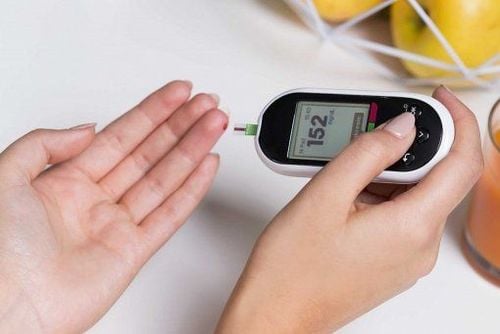
Tự kiểm tra nồng độ đường huyết hàng ngày
The process of self-monitoring of the patient's blood sugar level will be recorded daily in a notebook that can be accompanied by the diet and exercise regime of the day that the patient has performed. Thanks to this regular monitoring, the patient will know if he has taken care of himself and has managed his diabetes well or not. When going to the doctor, the patient will give a monitoring book to the doctor, the doctor will review the patient's entire self-monitoring process, if necessary, the doctor will reconsider the indication for insulin (injection dose, number of times). injection, time of injection) as well as other indications of treatment, may include adjustments in diet and exercise regimen.
During the self-monitoring process, if any abnormality occurs, the patient should immediately contact the doctor as soon as possible to determine the cause and have appropriate treatment.
Currently, Vinmec International General Hospital has a Cardiovascular and Diabetes Screening package, to help detect pre-diabetes early, accurately classify diabetes type, develop a nutritional regimen, and monitor reduce the risk and complications caused by diabetes.
Please dial HOTLINE for more information or register for an appointment HERE. Download MyVinmec app to make appointments faster and to manage your bookings easily.
Article reference source: Webmd.com



